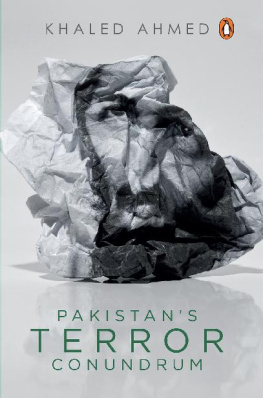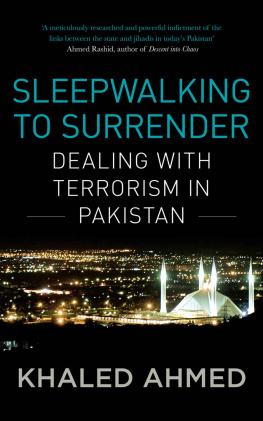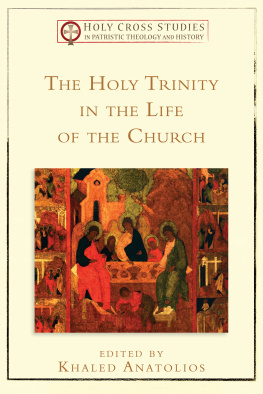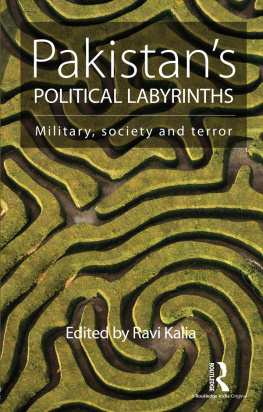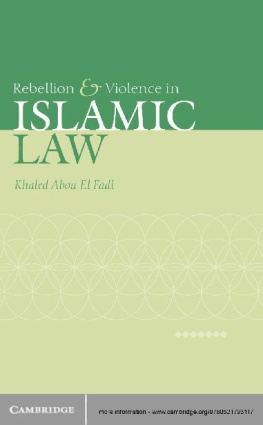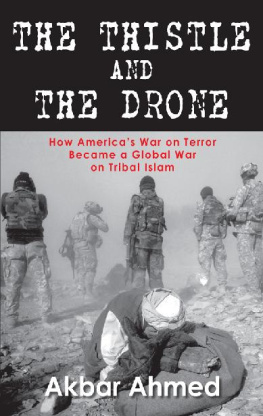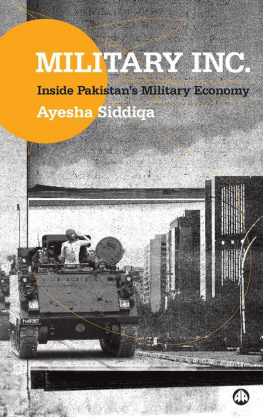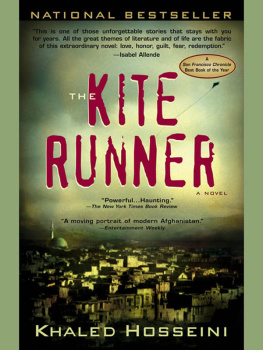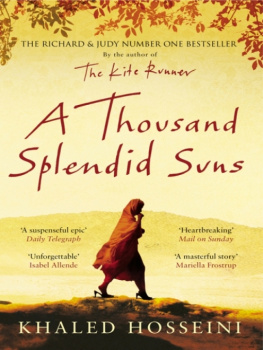KHALED AHMED
PAKISTANS TERROR CONUNDRUM
Contents
For Iqbal Z. Ahmed,
chairman of the Associated Group and
founder of Newsweek Pakistan,
where most of the content of this book was first published
Preface
As the Twig Is Bent
Most of the chapters in this book have been published in Newsweek Pakistan , Indian Express , Friday Times and Dawn over the years. I am grateful to the editors of these publications for their cooperation and support. The concerns raised in this book are as relevant today as they were when they were originally published.
This book describes the pain the people of Pakistan went through after the establishment of the state amid communal violence and a collective consciousness of danger. Conflict began soon after the creation of the state, with military action establishing the primacy of the army in Pakistan. Democracy was disputed from the outset between politicians nurtured by the British Raj and the clergy that advocated a utopia in which Islam was to be the ideological guide.
An unstable Pakistan, at war with neighbouring India, came to be dominated by the generals who wished to guide the new state to security, but whose interference in governance inaugurated what is called the era of dictatorships. Pakistan was dismembered in 1971. The memory of this dismemberment permanently changed the way the country thought of itself. The present volume accounts for the events after the SovietAfghan War in 1979, when the global superpowers clashed in Pakistans neighbourhood and encouraged it to take part in the conflict through its non-state actors, with whom the country soon learned to share sovereignty. The book describes the survival of the state in the midst of these non-state actors armed with superior ideology and immunity from law.
The state of Pakistan was founded on the consensus that it has to be Islamic. As a religious state, it seeks sharia as an ideal. All states must seek an ideal as their foundational teleology. There is muted disagreement between ideologues and pragmatists over this ideal. It is muted because of intimidation, but it is definitely there, especially after the Talibanization of the country through illegal action by the Islamists. It is the threat of religion as an extra-legal force that is causing many Pakistanis to wonder if the state can move forward into the future with Islam as its credo.
The founding party, the All-India Muslim League (popularly called Muslim League), was apparently open only to Muslims because of its name. It challenged unsuccessfully the right of the Indian National Congress (INC) to represent Muslims too. The politics of the Muslim League unfolded in the midst of communal disharmony. Its separatist electoral pitch compelled it to use Islam as a slogan. Muhammad Ali Jinnah used it too. He used the word sharia, but it is doubtful that he knew sharia the way Allama Iqbal did, which led the Allama to reject the Quranic Hudood laws, which later compelled General Zia-ul-Haq to reject Allama Iqbal. Jinnah more likely knew it through his legal practice in Muslim family law.
It is interesting to note that when in 1949 the Constituent Assembly of Pakistan adopted the Objectives Resolution, it used the less-threatening terms Quran and Sunnah rather than sharia, which later came to be embedded in Article 203(C) of the Constitution and is related to the Federal Shariat Court. The politicians who signed the resolution knew nothing about what the guiding code meant, as they reassured the non-Muslim members that they would be equal citizens. The non-Muslims, not easily consoled, came down to Lahore only to learn from the clerics that they would be zimmi s (non-Muslim subjects of a state governed according to the sharia) who would have to pay a special tax. When General Zia shoved the Objectives Resolution into the Constitution through the 8th Amendment, he removed the word freely from the sentence, which assured the non-Muslims that they would be able to practise their religion freely. No notation was made in regard to the change of text. In 1949, the resolution had God Almighty in its first paragraph; it was changed to Almighty Allah in 1953 without any reference to the assembly that had passed it. The guiding principles, passed off as harmless in 1949, became menacing for both Muslims and non-Muslims with the passage of time.
Pakistan became less and less viable as it converged on sharia. Jihad used to be the grand Islamic subterfuge, confusing the world about war and peaceful effort; now it is straightforward qital (killing). It used to be accepted that jihad could only be declared by the state. Now it is consensually privatized and internationalized, thus undermining a fundamental function of the state. On the law of evidence, if a scholar leans on the Quranic text to challenge the clergy on the half testimony of a Muslim woman, he is told to shut up because sharia has already decided the matter. Sharia is what fiqh (Islamic jurisprudence) makes of the Quran and Sunnah. An Egyptian professor at the Saudi-funded International Islamic University of Islamabad contended that infibulation (female circumcision) was sharia in Egypt, under the practiced Shafii fiqh, but banned wrongly under the official Hanafi fiqh.
It is the doctrine of amr bil maruf wa nahi an al-munkir (approving the good and stopping that which is banned) with which began the dismantlement of the state of Pakistan. It consists of taking vigilante action against munkiraat (banned practices), implying a rejection of state authority that is purported to be replaced by vigilantes. With jihad representing the external face of the Islamic state and amr-nahi (where amr means command and nahi means no) representing the internal face, the state is converted into a destructive black hole on the world map. An internally failed state because of amr and nahi is seen attacking other states through its armed citizens, that too without legal cover. The state is committed to ban modern banking, insurance and lotteries, etc., under sharia.
An Islamic state intent on a sharia-based revolution embraces isolationism as its programme, almost like the Stalinist slogan of socialism in one country. After 1947, the state misunderstood itself as a castle of Islam. It fondly thought of itself as a society cut-offthat is what the word castle meansfrom the rest of the world, with an ability to stand up to hostile sieges. It also presaged the totalitarianism of the clergy after the modern state was overthrown. Pakistan also allowed the transnational concept of the umma to inform its ideology. It acknowledged that the concept of the nation state was not compatible with its teleology because of the concept of umma.
When it tested its first atom bomb, the state of Pakistan could not for long keep up the pretended doctrine that it was India-specific. It was soon acclaimed as an Islamic bomb, a transnational weapon that would threaten not only India but many other states across the globe. The moment it became a religious bomb, its transformation into a sectarian one was inevitable. Many respectable scholars believe that Pakistans Sunni bomb caused Irans Shia bomb to be produced. Just as a religious state Pakistan cannot avoid becoming a sectarian one, conceptually, its bomb too threatens Iran, in addition to threatening the entire non-Muslim world.
The terrorist outreach of political Islam is being opposed by strong powers that have the capacity to strike at its incubation grounds. If this polarity is interpreted as Christianity versus Islam, then Islam doesnt benefit from the neutrality of the non-Christian world either. In fact, the non-Christian world feels equally threatened and is inclined to forget its contradictions with the dominant Christian powers, seeking to form an alliance with it to confront Islam. Given this near-total opposition of the world, political Islam, thriving on lack of secular education, has little chance of surviving as a winning force. Political Islam can only eat its own children.



